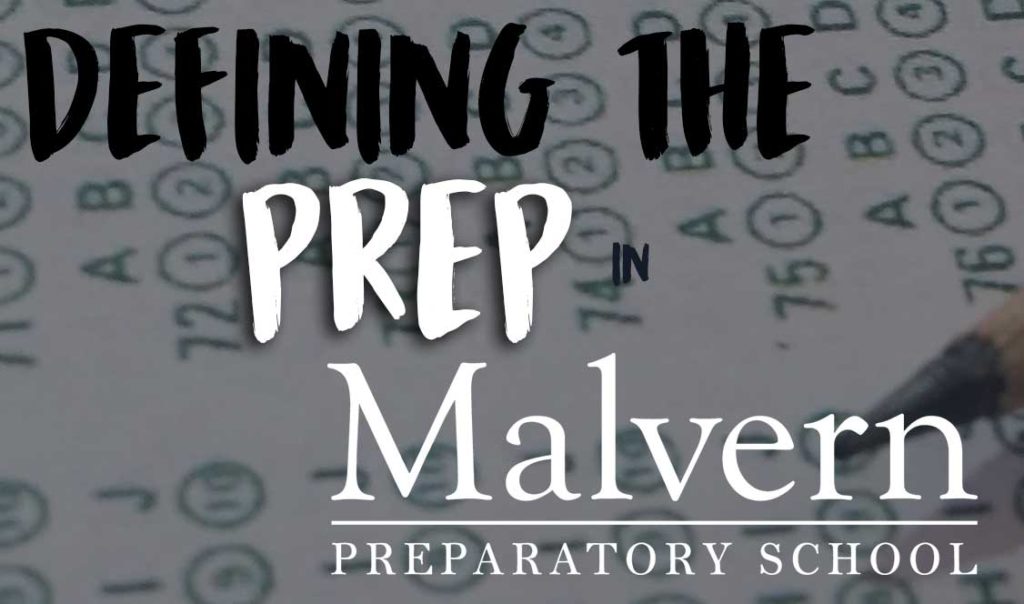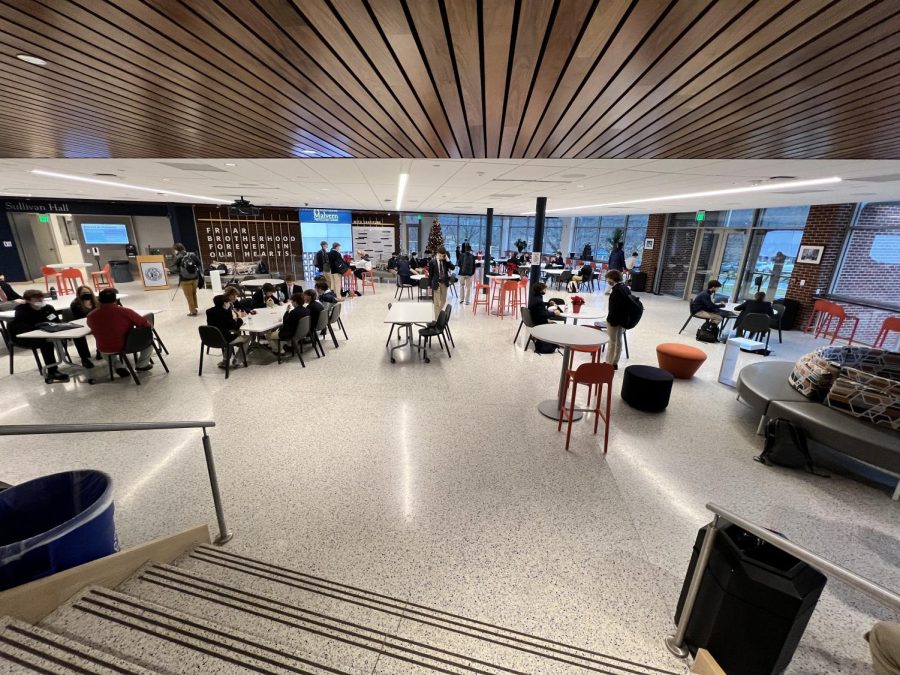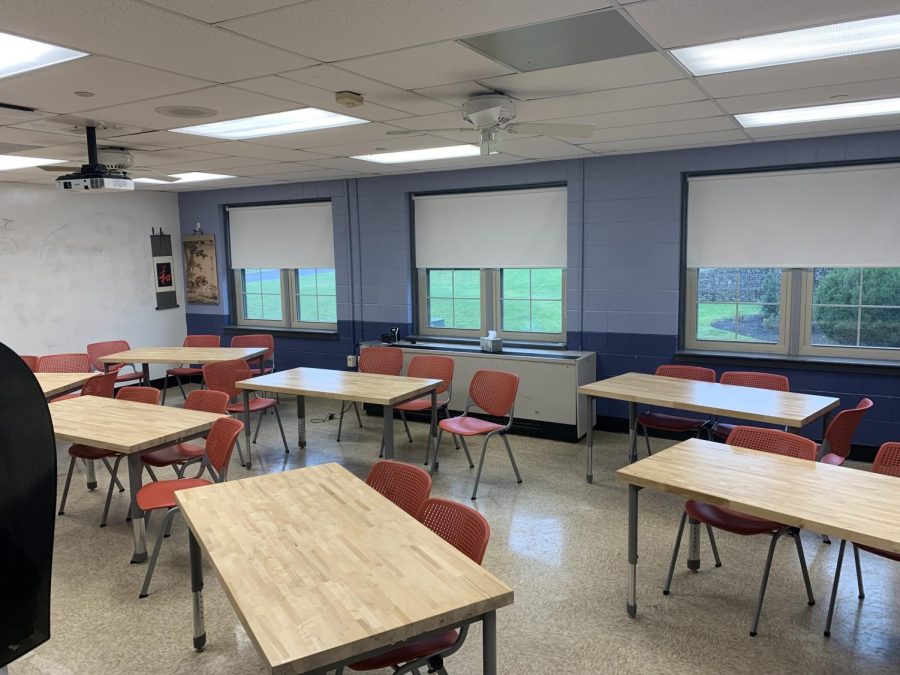Is project based learning the best way to prepare us for life in college and beyond?
 It’s no secret that college is difficult. No matter what school you go to, you are going to be in an academically rigorous environment that challenges its students.
It’s no secret that college is difficult. No matter what school you go to, you are going to be in an academically rigorous environment that challenges its students.
Malvern, for the most part, does a great job in preparing its students to be ready when they walk onto campus as freshmen. However, we feel that there is some room for improvement.
October is a month when many college freshmen return to Malvern’s campus for Homecoming, fall break, or just to catch up with old friends and teachers. A common question these alums get is, “How are your classes going?” Our Editorial Board decided to ask these alumni questions such as this one, as well as how Malvern has prepared them for their first couple months of college.
A frequent response was that Malvern prepared them fairly well for adapting to their classes, but many alums felt that they were ill-prepared for the tests and extensive reading that they now face in college. The majority of alums questioned said that their grades were mostly made up of quizzes and tests, and that they had very few class projects.[perfectpullquote align=”right” cite=”” link=”” color=”” class=”” size=””]If Malvern is a college preparatory school, why are we preparing for the sort of learning we will most likely not see in college?
[/perfectpullquote]
Alumni said that they were often challenged academically at Malvern, but the tests in college contain so much more content that they have trouble with knowing how to study.
In recent years, Malvern has increasingly implemented project based learning as part of a 21st century education. Students in this year’s freshman class who attended Malvern’s Middle School will be the first to go through the Academy Model from sixth through twelfth grades. If all goes according to plan, the entire school will be under the Academy Model in just three years.
In a recent update to Malvern parents, Assistant Heads of School Mr. Ron Algeo and Mr. Patrick Sillup described the Academy Model as aiming “to create real learning moments for students as they navigate these incredibly formative years of their development.” The update described two teaching and learning highlights from this fall: a ‘build-it’ project in which a sixth grader built a soda machine out of cardboard, and a freshman math project involving riddles and a contest. Notably, neither of these examples included descriptions of testing.
 While students still will have the stereotypical test and quiz, we expect that projects will be more and more encouraged at Malvern. However, based on what we are hearing from alumni, colleges do not seem to be intending to switch their learning style within the next three years. We also do not see any immediate changes that would make the standardized tests that predict our ability to do well in college, like the SAT and ACT, more project-based.
While students still will have the stereotypical test and quiz, we expect that projects will be more and more encouraged at Malvern. However, based on what we are hearing from alumni, colleges do not seem to be intending to switch their learning style within the next three years. We also do not see any immediate changes that would make the standardized tests that predict our ability to do well in college, like the SAT and ACT, more project-based.
If Malvern is a college preparatory school, why are we preparing for the sort of learning we will most likely not see in college?
We agree that it is important to know how to work in a group on a project for future endeavours in life. However, it is more likely that projects like these will be done after graduating from college.
This brings up the question: Is Malvern a college preparatory school or a “life” preparatory school?
 If it is a college preparatory school, students in college should be feeling as prepared as possible for their classes. This might mean more substantial tests and quizzes and reading, or less projects. But it will result in a more prepared college student, which is what Malvern intends for all of its students.
If it is a college preparatory school, students in college should be feeling as prepared as possible for their classes. This might mean more substantial tests and quizzes and reading, or less projects. But it will result in a more prepared college student, which is what Malvern intends for all of its students.
While having only three final exams per year is very nice for students and a lot less stressful, it is not realistic to believe that only three of your classes in college will have a final exam. While students might not like this now, they would probably come to appreciate this in years to come.
If Malvern is preparing us for future life endeavours, the project based learning model makes sense. In working environments, we hear that it is common to work on group projects and have the need to think on the spot and solve problems as they come up. These are definitely important skills to have in life that have an impact way beyond college.
Perhaps the skills of group-based projects have some application even to traditional testing in college.
“In college, working with your classmates isn’t just encouraged, it’s required,” Tyler Pizzico ’17, University of Pennsylvania ’21 said. “It’s almost impossible to understand everything in the lectures by yourself, and it’s important to establish a base of people to communicate and study with.”
Currently, we feel that Malvern is heading towards a more “life” preparatory approach. Perhaps, the solution is to more evenly distribute time spent between preparing students for life directly after Malvern and also life far beyond Malvern. The balancing factor is showing students how projects and group work can support them on the immediate challenges of traditional testing.
 Our Editorial Board acknowledges that this is a very difficult challenge. With the Academy Model moving forward, we encourage Malvern’s administration to handle decisions about the balance of traditional, rigorous assessments and project-based learning assessments with great care.
Our Editorial Board acknowledges that this is a very difficult challenge. With the Academy Model moving forward, we encourage Malvern’s administration to handle decisions about the balance of traditional, rigorous assessments and project-based learning assessments with great care.
We want to hear that all alumni feel prepared for the challenges both of college and of life.














Cody H • Nov 12, 2017 at 11:30 pm
Solid article. popped up on my facebook newsfeed from another Malvern alumni. I have to disagree with parts of this. I am currently getting my masters degree in civil/environmental engineering and over 50% of my grades in undergraduate and graduate program classes are project-based. I think it really depends on the major and type of emphasis your college puts on hands-on learning.